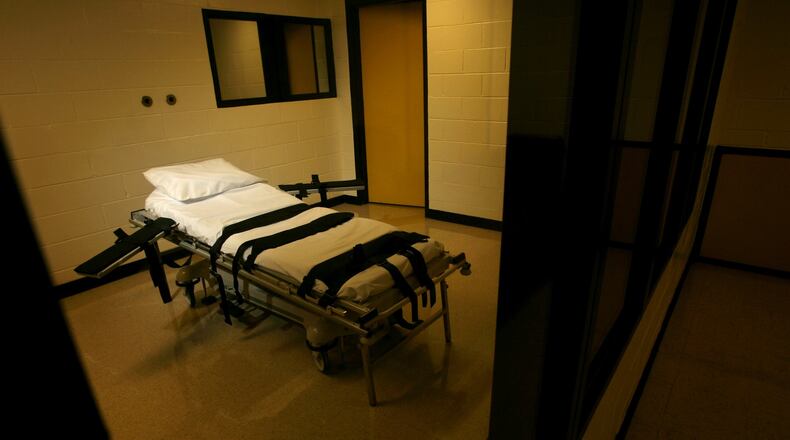The U.S. Supreme Court on Monday nearly doubled the number of Georgia inmates who are now eligible to be put to death by lethal injection.
The high court rejected appeals from three condemned murderers, including the oldest member of Georgia’s death row — 72-year-old Brandon Astor Jones, who was convicted of killing the manager of a Cobb County convenience store in 1979. This means state prosecutors can seek execution warrants at any time for seven men whose appeals have now been denied.
The Supreme Court, on the first day of its October term, rejected three petitions that had been pending this summer. The decisions also were issued just days after the highly controversial execution of Kelly Gissendaner, who was the first woman put to death in Georgia in decades and whose case attracted international attention.
"Because of all the litigation and questions about lethal injection, there's been a backlog of cases here in Georgia," said Atlanta lawyer Jack Martin, who has defended numerous death-penalty cases. "Now it looks like the floodgates are open. We're going to have to see if we're comfortable with executing someone just about every other week or so."
Gissendaner became the third person executed by Georgia this year, but there had been an eight-month lull since two inmates — Andrew Brannan and Warren Hill — were put to death by lethal injection in January. In the meantime, more and more appeals from condemned killers have been exhausted.
Over the past 15 years, Georgia has executed 35 people, with four executions being the most in any single year, according to the Death Penalty Information Center in Washington.
The inmates whose appeals were denied Monday:
- Brandon Astor Jones, 72, who was sentenced to death for the 1979 robbery and murder of Roger Dennis Tackett, a 30-year-old high school teacher working a second job at a Tenneco convenience store. Ten years after Jones' trial, a federal judge ordered Jones to be resentenced after it was revealed his trial judge had granted a juror's request for a Bible during deliberations. In 1997, another jury sentenced Jones to death a second time. (Jones' co-defendant, Van Roosevelt Solomon, was executed in 1986.)
- Kenneth Fults, 46, who sits on death row for the 1996 killing of Cathy Bounds in Spalding County. Fults, who is African-American, ended a weeklong crime spree by breaking into his next-door neighbors' home. He overpowered Bounds and shot her five times in the back of her head. Fults' latest appeal said he did not receive a fair trial because one of his jurors was a racist. It included an affidavit from that juror who said he knew he would vote for death "because that's what that (racial slur) deserved."
- Daniel Anthony Lucas, 36, who was sentenced to die for his role in the 1998 murders of three members of the Moss family during a botched burglary and robbery in Jones County. Lucas' co-defendant, Brandon Rhode, was executed for the murders in 2010.
Jones, Fults and Lucas join four other inmates who were already eligible for execution: Brian Keith Terrell, Marcus Ray Johnson, Travis Hittson and Joshua Daniel Bishop.
Terrell, who was sentenced to death for killing a 70-year-old Newton County man in 1992, could be the next inmate scheduled for execution.
Terrell's execution previously had been set for March 10. But when Gissendaner's execution, previously set for March 2, was postponed because a prison system pharmacist said the drugs prepared to execute her looked "cloudy," Terrell's execution was postponed too.
About the Author
The Latest
Featured

